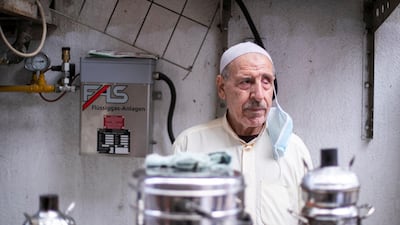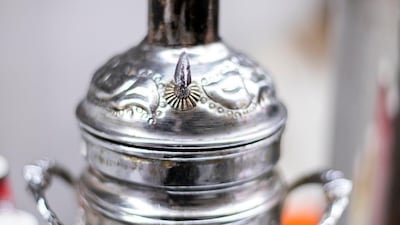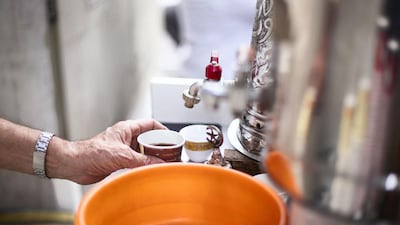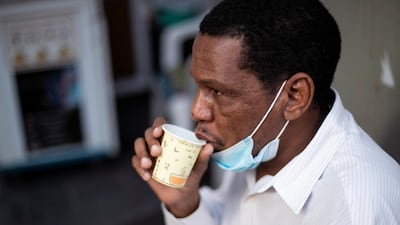Hussain Al Khawaldi fondly recalls the days when he brewed coffee over hot coals on a roadside in Deira’s souq.
It was in 1981 that the Syrian, then 26, first started grinding and boiling coffee beans for his loyal customers, who waited patiently for their cup of Turkish espresso.
Forty years later, he sits in the same spot, making coffee for those who like it the old-fashioned way.
In these four decades, Mr Al Khawaldi said Dubai has transformed from a desert backwater port into a skyscraper city.
Today, it is about Starbucks and Costa Coffee. The big chains have completely changed the way people drink coffee, he says.
The big shopping malls with fancy cafes and Dubai’s transient population have left a dent in Mr Al Khawaldi’s sales.
Originally from Daraa, a city in south-western Syria, he came to Dubai in 1976, looking for a job.
It was just a few years after the UAE was formed. People still retained emotional ties to the Bedouin lifestyle and used coins to buy things.
But these were soon replaced by paper currency as the times changed.
"Life was much simpler back then and things were much cheaper. For Dh50 ($13.6) you could fill your fridge with fish, meat and vegetables," Mr Al Khawaldi says.
But he cherishes and values what Dubai has given him.
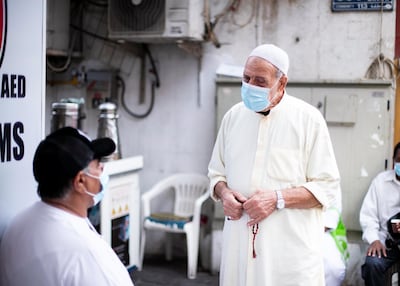
Mr Al Khawaldi was the eldest child in the family but could only study until grade 5, after his father lost his job at a public department in Damascus.
"My family's financial difficulties were so bad that they couldn't even send us to free public schools, but I learnt that life is the real school," he says.
“I left my parents, three brothers and three sisters behind and came to Dubai, after an attempt to travel to Kuwait was not successful.”
He initially lived with some Syrian men in Al Rashidiya area and worked in a cafeteria for three years.
"The business owner gave me food and accommodation, then gave me my three years' salary – which was nearly Dh30,000."
Mr Al Khawaldi had never seen so much money in his life, and decided to get married. He travelled back to Daraa, from where he knew his bride-to-be, and threw a lavish wedding reception that was attended by the entire neighbourhood.
He stayed there for nearly six months but soon started running out of money.
It was time to return to Dubai and start earning once again. He went back to find his old employer but the cafeteria was shut and the owner had left the emirate.
"I looked for another job but couldn't find any. So, I started thinking about starting my own business," he says.
He bought a small stand, three coffee percolators and a bag of coal. He applied for a business licence from Dubai Municipality and set up his little roadside joint.
"Licences were then issued by the municipality, not the economic department," Mr Al Khawaldi says.
His spot in Al Sabkha has not changed much, despite the Dubai construction boom that has made thousands of millionaires.
"The street was much wider earlier, and big buildings have now sprung up," he says.
“One building housed a coffee shop where men gathered in the evening to play backgammon and listen to famous Arab and Khaliji singers like Umm Kulthum and Rabab on the radio.”
In the early 90s, Mr Al Khawaldi lost the sight in one eye due to high blood pressure.
“But I continued to work while my wife, four daughters and two sons remained in our home in Daraa,” he says.
The pain of being away from his family is apparent on his face.
“My wife and children want to live in Dubai but that’s not possible. It's very costly and I can’t afford it.”
Mr Al Khawaldi hopes to make more money and one day bring his family to show them this magical place.
But with every new glitzy coffee shop that opens up, it remains an ever-more distant dream.
